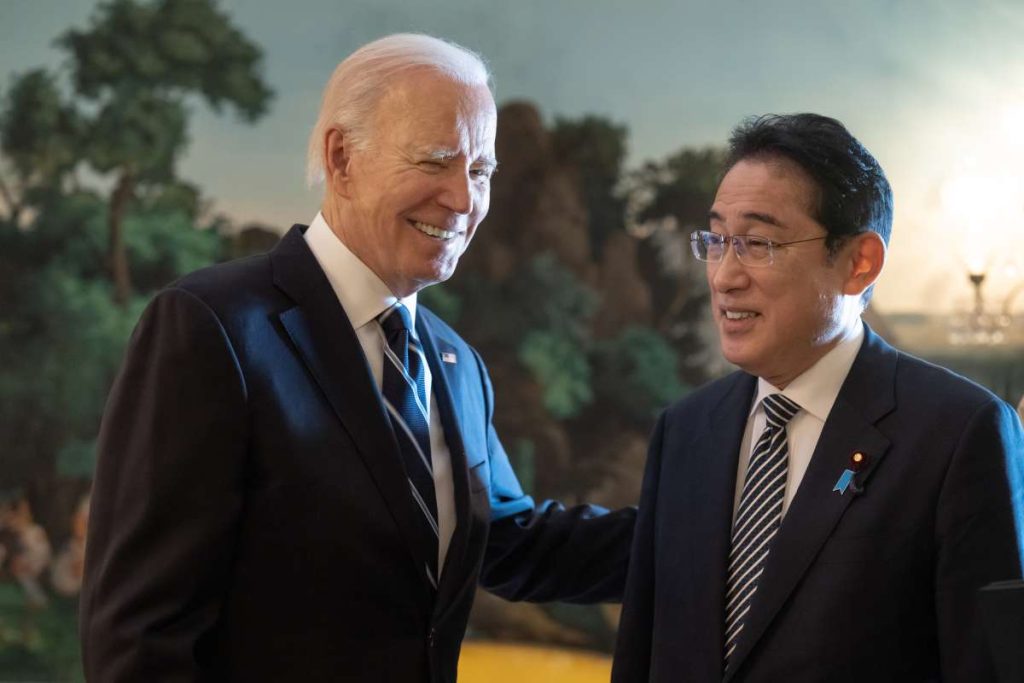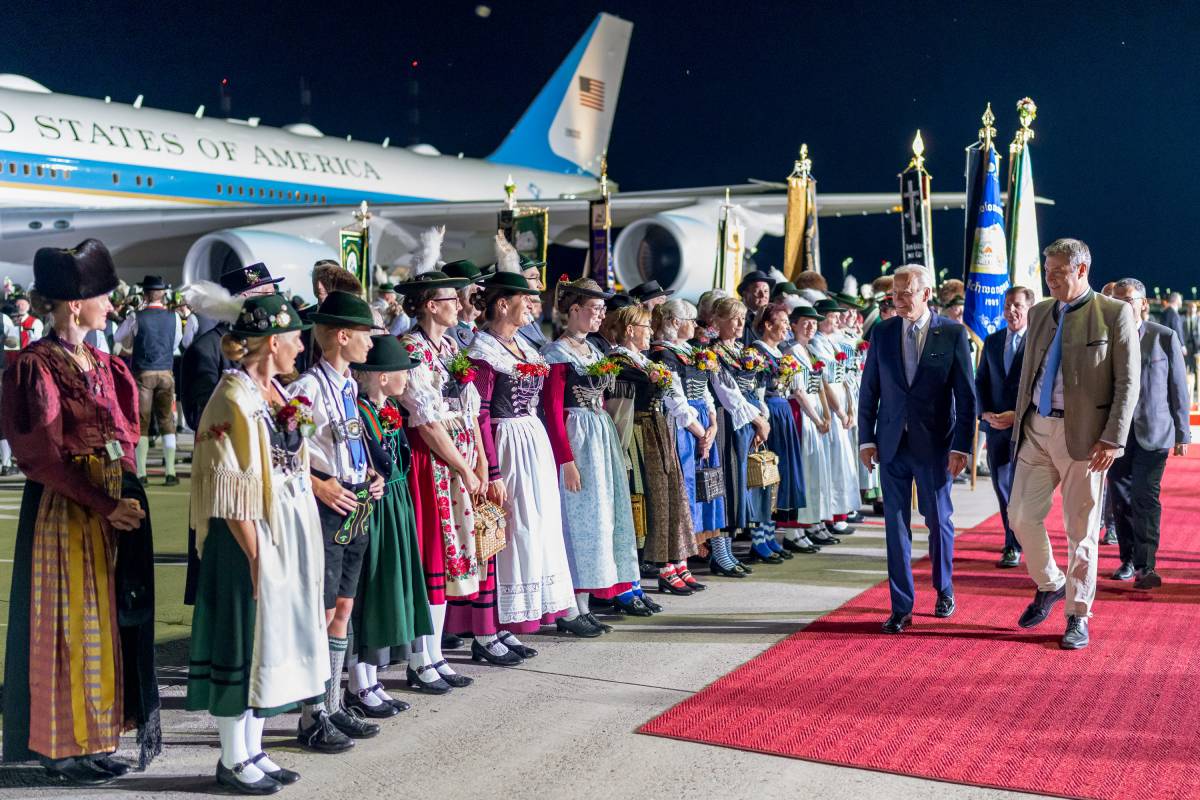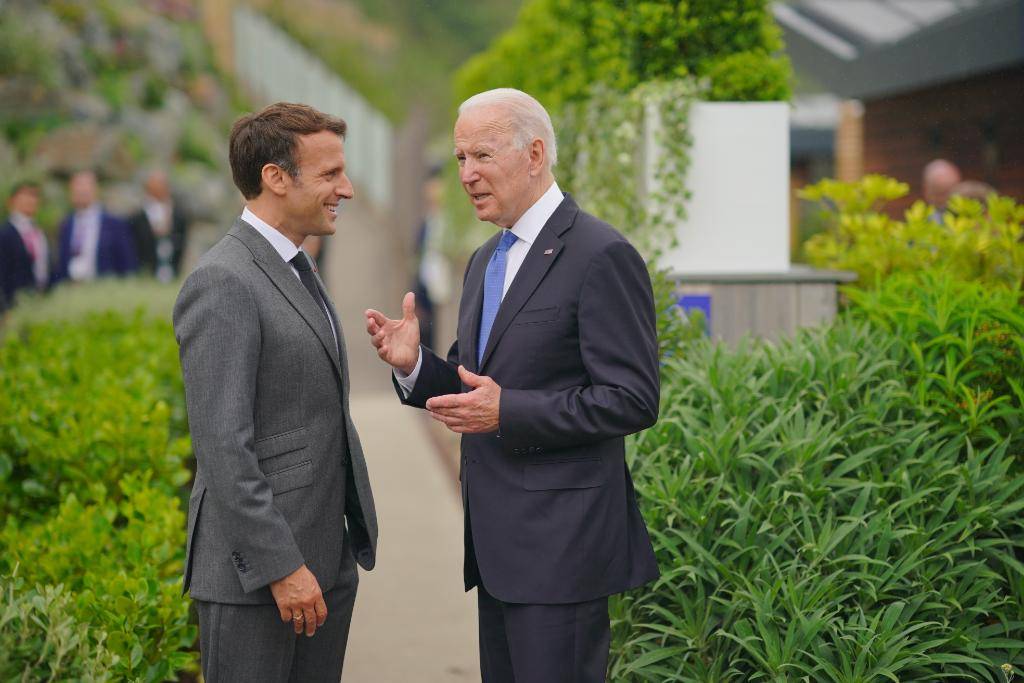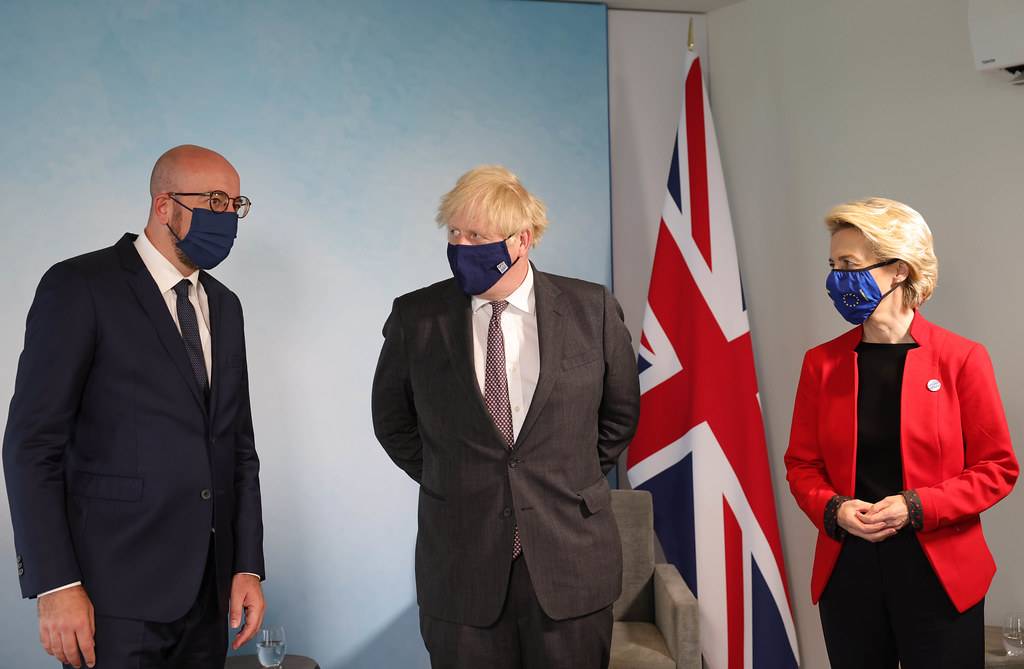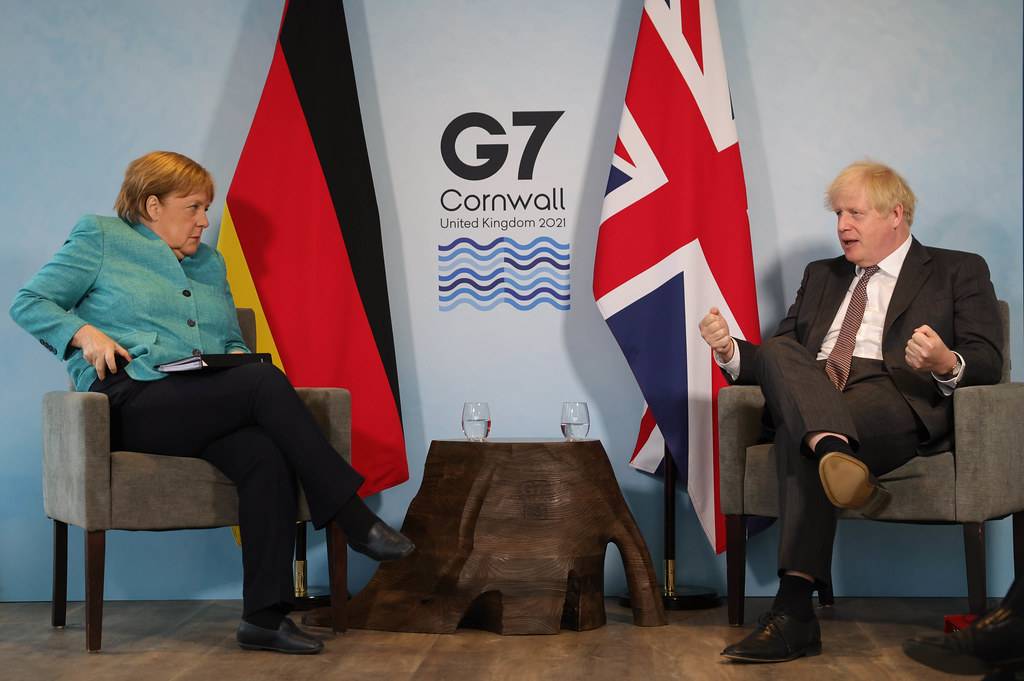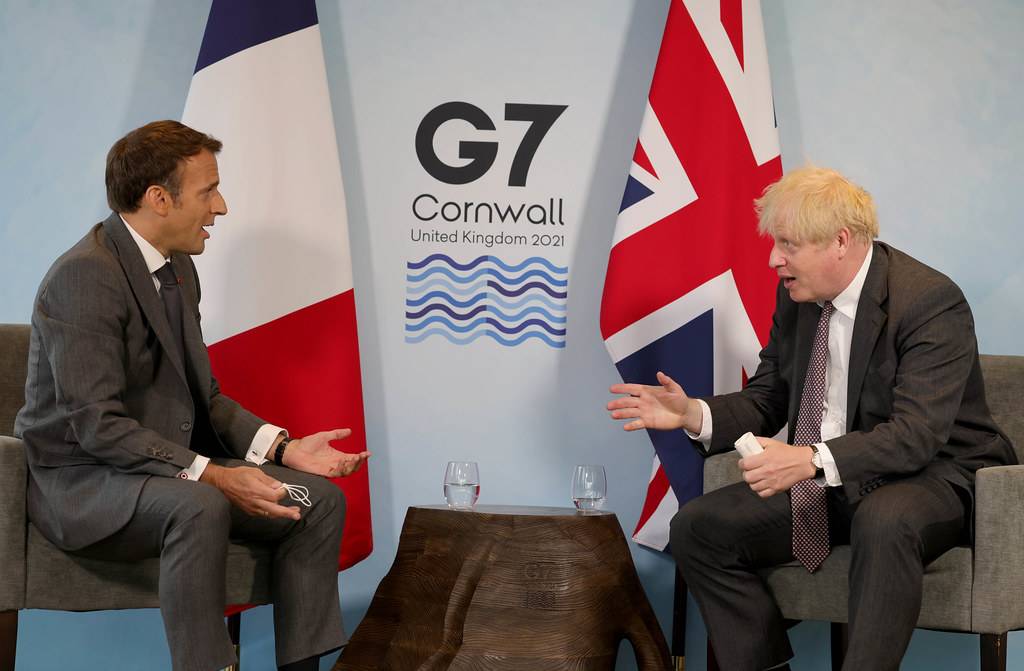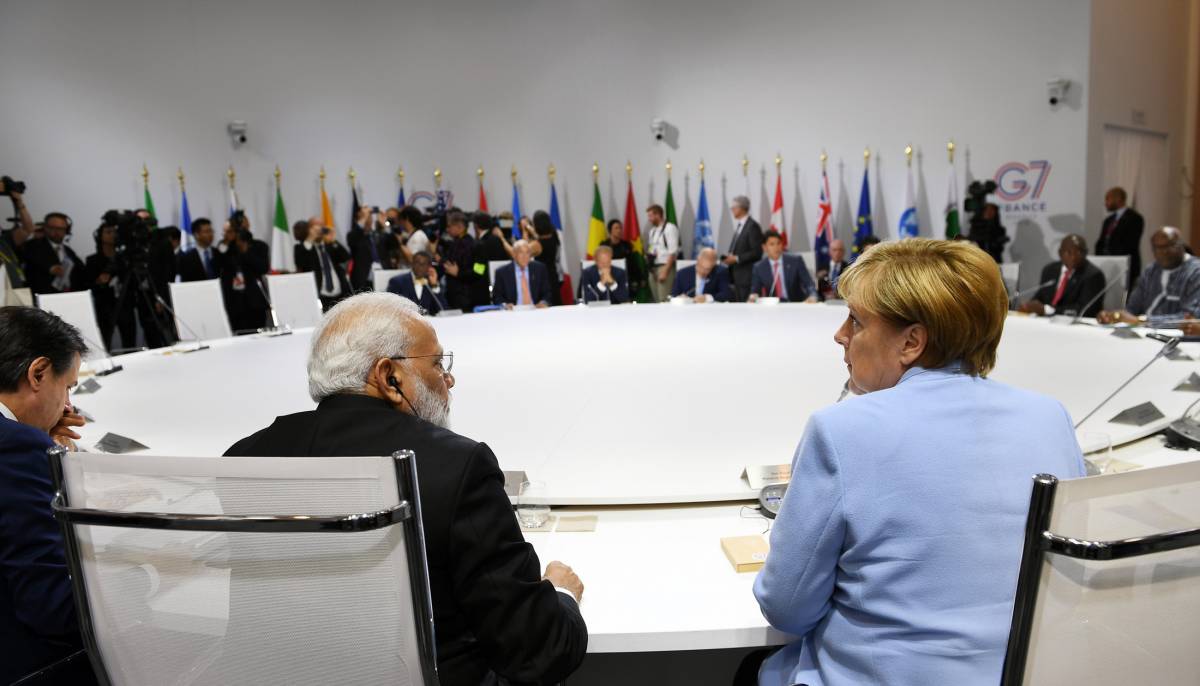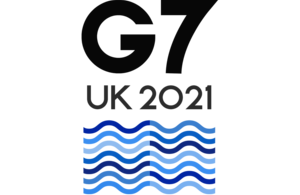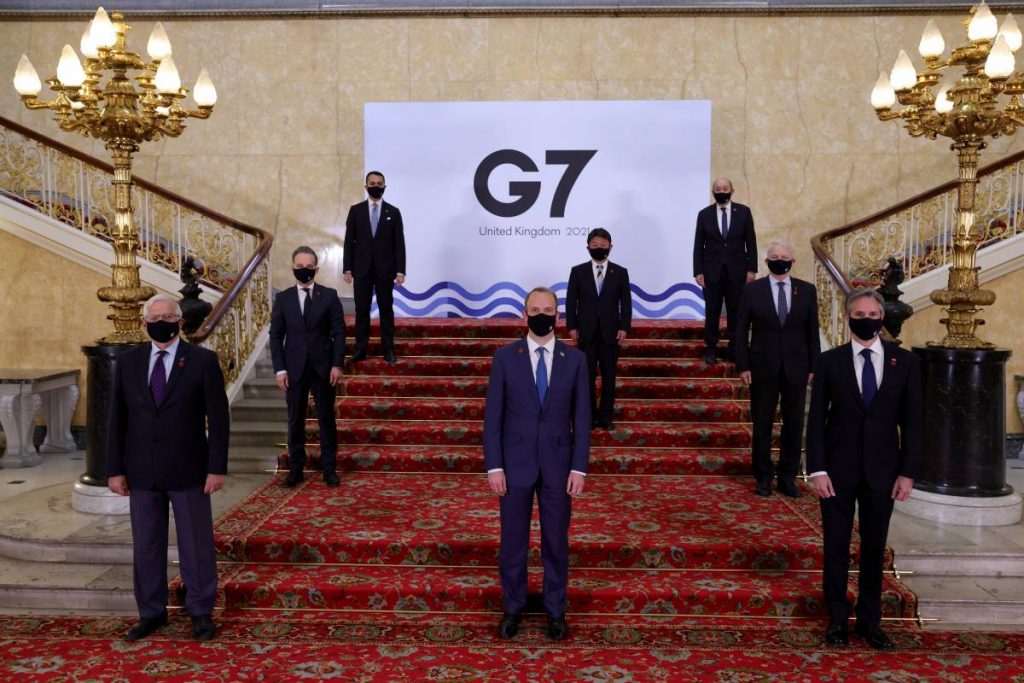Jake Sullivan, the White House national security adviser, said the Russian invasion looms large, and would be a significant conversation during the summit…reports Asian Lite News
President Joe Biden arrived in Japan Thursday with plans to meet privately with Japanese Prime Minister Fumio Kishida ahead of the larger Group of Seven summit — a sign of how the economic and national security alliance between the two countries has strengthened.
Kishida’s home city of Hiroshima will play host to the gathering of major industrialised nations. The setting of Hiroshima, where the US dropped the first nuclear bomb in 1945 during World War II, carries newfound resonance as the US, Japan and their allies strategise on dealing with Russia’s ongoing war in Ukraine.
Jake Sullivan, the White House national security adviser, said the Russian invasion looms large, and would be a significant conversation during the summit.
“There will be discussions about the battlefield,” Sullivan said aboard Air Force One, stressing that the G-7 leaders would work to seal off any loopholes in sanctions so their effect can be maximised.
“There’ll be discussions about the state of play on sanctions and the steps that the G-7 will collectively commit to on enforcement in particular.”
Sullivan said the alliance between the US and Japan was at a “genuine high-water mark.”
He said Biden and Kishida, in their meeting, will aim to advance a relationship that’s progressed over the course of the last two years “in every dimension, whether it’s the military dimension of the alliance, the economic dimension, the recently concluded agreement on clean energy, the work we’re doing together on economic security.”
Last year, Biden came to Tokyo to discuss Indo-Pacific strategy and launch a new trade framework for the region, with the US president and Kishida engaging in an 85-minute tea ceremony and seafood dinner.
Kishida was quick to call out the risks of nuclear-power Russia invading Ukraine in 2022, saying then, “Ukraine today could be East Asia tomorrow.”
China has declared a limitless friendship with Russia, increasing trade in ways that blunted the ability of financial sanctions to constrain the war. But the US and its allies say China has yet to ship military equipment to Russia, a sign that the friendship might have some boundaries.
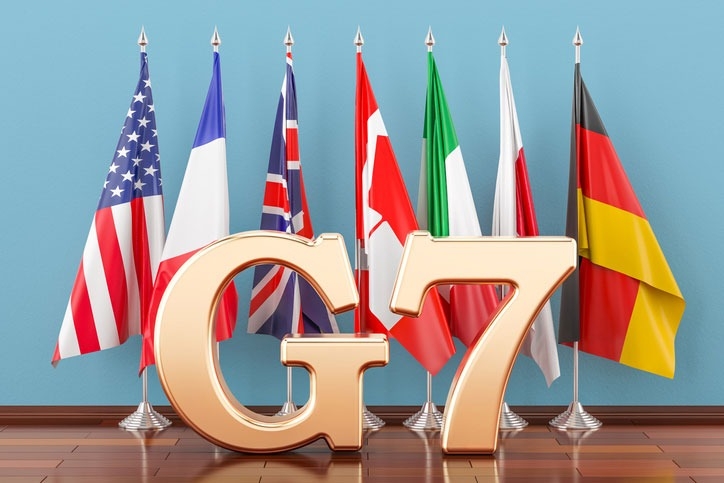
Biden and Kishida also have economic matters to consider. The US and Japan have begun to redefine global trade with an eye toward supply chain resilience and national security.
They recently signed an agreement on critical mineral supply chains. They’re also cooperating on the development of renewable energy sources and partnering on efforts to limit China’s access to advanced computer chips.
Kishida hopes to discuss further strengthening of deterrence and response capability with Biden in the face of China’s assertiveness in the Indo-Pacific region, as well as confirming the importance of the Taiwan Strait for global peace and stability. China has asserted that self-governing Taiwan should come under its rule. US officials have been briefed on the possible economic damage caused by a war over Taiwan, which would disrupt the supply of advanced computer chips.
Japan is also keen to discuss ways to reinforce its three-way partnership with the US and Seoul following an April agreement between the United States and South Korea to strengthen their tools to deter the risk of a nuclear attack by North Korea.
Kishida and Biden will hold a trilateral summit with South Korea’s Yoon Suk Yeol on the sidelines of the G-7 summit. But Kishida is in a complicated position by discussing efforts to respond to nuclear threats by North Korea with Japan’s history of also calling for a world free from nuclear arms, said Kan Kimura, a Kobe University professor and an expert on South Korea.
In the wake of World War II, Japan embraced pacifism. The atomic bomb scorched Hiroshima, killing 140,000 people and destroying most of the river delta city’s buildings. But current conditions are testing Japan’s pacifism and anti-nuclear weapon tradition.
“Kishida is from Hiroshima, believes deeply in the disarmament agenda,” said Christopher Johnstone, a senior adviser at the Centre for Strategic and International Studies, a Washington think tank. “Of course, Kishida is walking a fine line. He recognizes the need for the nuclear umbrella, Japan’s dependence on US extended deterrence — that that’s more vital than ever, frankly, in the current security environment.”
There are outstanding issues between the US and China. During a January meeting with Kishida, Biden brought up the case of Lt. Ridge Alkonis, a US Navy officer deployed to Japan who last year was sentenced to three years in prison after pleading guilty to the negligent driving deaths of two Japanese citizens in May 2021, according to a senior administration official.
Alkonis also agreed to pay the victims USD 1.65 million in restitution. His family is seeking his release, saying he was detained until he confessed.
As much as Biden believes he has improved relations with US allies, he still faces political turmoil at home.
The president on Wednesday curtailed part of his trip across the Pacific Ocean. He will skip Papua New Guinea and Australia in order to return to Washington in hopes of finalising a deal to raise the federal government’s debt limit.
“The work that we need to do bilaterally with Australia and with the Pacific Islands is work that can be done at a later date, whereas the final stretch of negotiations over the debt limit or the budget cannot be done at a later date,” Sullivan said Wednesday.

